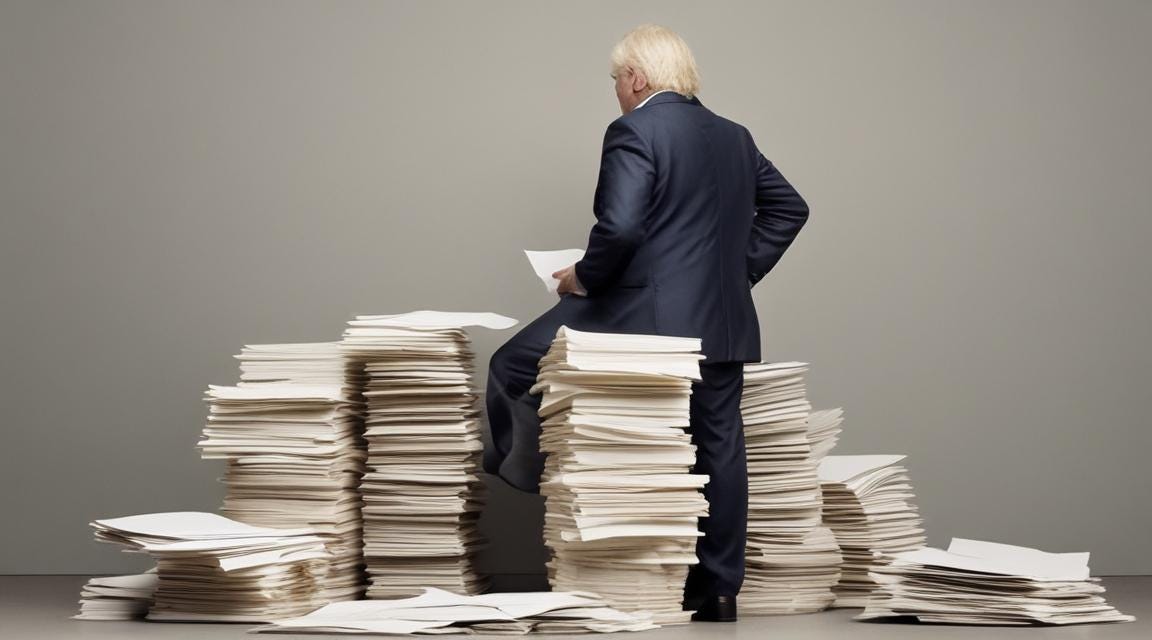On Project 2025
Trump knows little about policy or governing. Why would he care about a report?
I have a new piece about Project 2025 running over at The Dispatch this morning.
My point is that no 900-page report assembled by a think tank was ever going to be Donald Trump’s playbook. Mr. Trump has never been a student of policy, he has no discernible ideology, he regularly changes his mind, and he’s never wedded to the views of his staff. It’s simply unimaginable that he would either dictate a policy document of such specificity or feel beholden to something contrived by others.
Yes, I understand the politics of this: Opponents of Mr. Trump successfully defined the report as radical, successfully attached it to his campaign, and successfully made it a months-long liability. I suppose that’s an interesting political story.
But as I’ve written here 100 times (sorry for the repetition), this column is focused on policy and governing, not politics.
So I read the report.
The report is hot-blooded. Some of its authors give the impression that the end-times are near. It certainly reflects the pugnacious, populist brand of conservatism now popular in many circles (as opposed to the more libertarian, sober-minded conservatism that obtained for years). It expresses strong views on China, the administrative state, a host of social issues, schools, and much more. It also has extensive analysis and recommendations about various government agencies and programs.
But as I read the report, I found myself continuously saying, “I’m not sure that Mr. Trump actually believes that...”
The report’s various authors are very interested in family policy. I’m not sure Mr. Trump is. One chapter has a traditional, even classical, take on the relationship between liberty and duty; one has a communitarian take on a subsidiarity-style understanding of society. I’m not sure Mr. Trump sees the world in these ways.
One chapter makes the case for a sensibly organized and managed White House staff. That was certainly not what Mr. Trump fostered in his first term. The report wants to reduce the power of the administrative state; I suspect Mr. Trump just wants it to be more loyal to him.
When Project 2025 was growing more and more unpopular, Mr. Trump publicly explained that it didn’t reflect his positions. Commentators for the most part scoffed at that. They pointed out that some of his former officials helped produce it, and they said he was distancing himself from it for political reasons. Both of those points are true. But it is also the case that Mr. Trump lacks a coherent approach to governing, knows little about detailed policy matters, and would never reflexively defer to advisors who possess subject-matter expertise.
Heritage did what it has been doing for decades: It wrote a roadmap ahead of a presidential election. Lots of think tanks and advocacy groups do this. Project 2025 reflected its views and those of its authors. There are many, many, many reasons to criticize Mr. Trump. Someone else’s report need not be one of them.
As I wrote at the end of The Dispatch piece:
Given what we have learned over the years about Trump’s philosophically scattered and mercurial approach to governing, it was always unwise to cast this report—or any report for that matter—as the former president’s playbook. We should anticipate Trump’s future by looking at his past behavior, not by looking to others’ recommendations. We have plenty of direct evidence by which to judge the former president; we need not do it by proxy.



